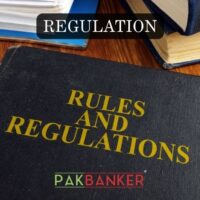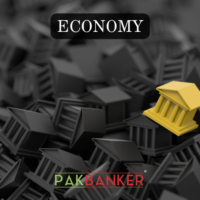

APTMA asks FBR to adjust super tax liabilities against pending refunds
APTMA has urged the FBR to allow adjustment of super tax liabilities against long-pending sales tax and income tax refunds, warning that immediate recovery could disrupt the cash-strapped textile sector.

FBR Chairman Acknowledges High Salary Tax Burden, Stresses Need for Compliance
FBR Chairman Rashid Langrial admits Pakistan’s salaried class faces higher tax burden than regional peers, urging improved compliance and broader tax base.

FBR Intensifies Anti-Smuggling Operations in Balochistan to Curb Illicit Trade
FBR directs stronger anti-smuggling action and faster resolution of traders’ issues during a two-day inspection of Pakistan Customs formations in Balochistan to protect revenue and trade.

PTBA Calls on FBR to Stop Unequal Enforcement of Section 7E Property Tax in Punjab and Sindh
Pakistan Tax Bar Association urges FBR to ensure uniform enforcement of Section 7E property tax, citing discriminatory treatment of taxpayers in Punjab and Sindh despite High Court rulings.

ADB Recommends Tax Reforms and Regulatory Clarity for Pakistan’s Fintech Sector
The Asian Development Bank highlights tax complexity and regulatory gaps as major hurdles for Pakistan’s fintech growth, urging clearer laws, lower rates, adaptive licensing, and regional cooperation to enhance financial inclusion.

Pakistan Law Minister Upholds FBR’s Legal Right to Access Bank Data for Tax Compliance
Law Minister Azam Nazeer Tarar defends FBR’s legal mandate to access and share taxpayer bank data, emphasizing compliance with global anti-money laundering standards and transparency.

IMF Calls on Pakistan to Implement Tax Reforms and Enhance Fiscal Transparency
The IMF has urged Pakistan to release a comprehensive tax simplification strategy, reduce exemptions, and improve FBR accountability before the next fiscal year’s budget to strengthen fiscal management.

FBR Announces Major Reshuffle in Inland Revenue Leadership to Strengthen Tax Operations
The Federal Board of Revenue has appointed new officials to critical Inland Revenue roles, including Member IR Operations and Acting Chief LTO Karachi, while Member IR Dr. Hamid Atiq undergoes treatment following an injury.

CCP Highlights Reko Diq’s Potential To Transform Pakistan’s Gold Market
The Competition Commission of Pakistan report outlines how the Reko Diq project could formalize the gold sector, reduce import dependence, enhance traceability, and boost downstream industries while recommending digital transformation and regulatory reforms.

Pakistan Strengthens Tax Digitization with FBR Data-Sharing Initiatives
Finance Minister Muhammad Aurangzeb reviews FBR’s digitization progress, focusing on new data-sharing systems to identify non-filers and tax evaders, aiming to broaden the tax net and formalize Pakistan’s economy.


